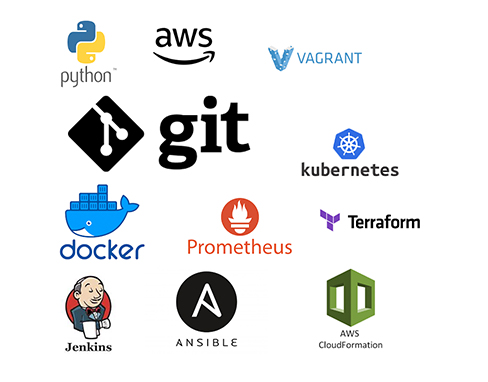Who should take this class?
- Software developers and engineers that want to learn how to incorporate DevOps concepts into their workflow in order to deliver faster and more reliably.
- IT Operations Professionals are in charge of maintaining infrastructure and ensuring software rollout runs smoothly.
- Quality Assurance (QA) Engineers and Testers who are in charge of testing and assuring the quality of software and want to learn how to integrate automated testing into CI/CD pipelines.
- Release and Deployment Managers are in charge of overseeing software release and deployment.
- Infrastructure and security engineers who want to learn how to manage and automate infrastructure resources while also ensuring security best practices are followed in DevOps processes.
- Project Managers and Product Owners in charge of managing software development projects who want to learn more about DevOps and increase collaboration between development and operations teams.
- Students and recent graduates who wish to learn about DevOps concepts and practices in order to advance their careers.
- Business leaders and CTOs that seek to use DevOps methods in their firms to speed up software delivery, minimize downtime, and improve overall business performance.


Become a DevOps Engineer at IDEaL
The DevOps Engineering course focuses on the DevOps concepts and practices, which are a software development process that emphasizes collaboration, automation, and continuous integration and delivery. Students learn how to streamline software development and operations processes, resulting in more dependable and faster product releases. Version control, automated testing, continuous integration, and infrastructure as code are among the topics discussed.
Technologies Covered

Learning Objectives
- Learn the fundamental DevOps principles and practices, such as continuous integration, continuous delivery, and infrastructure as code.
- Learn how to manage and collaborate on code efficiently throughout the development process using popular version control systems such as Git.
- Learn how to use CI/CD solutions like Jenkins and GitLab CI/CD to automate the development, testing, and deployment of software applications.
- Automate infrastructure resource provisioning and administration, as well as software installations.
- To manage and scale containerized applications, gain experience in containerization and container orchestration technologies.
- Use code to define, provide, and manage cloud infrastructure resources.
- Monitoring, logging, and performance analysis are used to ensure optimal application performance and the health of the infrastructure.
- Implement best practices for security across the software development lifecycle.
- Improve your communication and collaboration abilities to establish a cooperative culture between development and operations teams.
- Work on real-world projects that demonstrate the use of DevOps concepts in a variety of settings.
- Create a portfolio to highlight your abilities and expertise.
